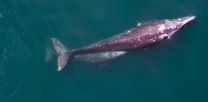Brain training induces lasting brain & mental health gains for veterans, civilians with brain injury
2015-05-28
(Press-News.org) In the first study of its kind, veterans and civilians with traumatic brain injury showed improved cognitive performance and psychological and neural health following strategy-based cognitive training. The Department of Defense-funded study, published this week in Neuropsychological Rehabilitation, was conducted by an interdisciplinary team of cognitive neuroscientists, rehabilitation specialists, and neuroimaging experts from the Center for BrainHealth at The University of Texas at Dallas.
"Veterans and others who have sustained traumatic brain injuries often experience persistent cognitive and psychological difficulties, such as depression and/or post traumatic stress disorder, which hinder day-to-day life activities," said Dr. Sandra Bond Chapman, founder and chief director of the Center for BrainHealth and principal investigator on the study. "This study shows that strategy-based cognitive training focusing on abstract and innovative thinking not only improves cognitive areas critical to everyday life success but also improves brain blood flow to key regions of the brain and lessens depressive and stress-related symptoms."
The study examined 60 individuals between the ages of 19 and 65 years of age who had sustained at least one traumatic brain injury previously. More than two-thirds of the participants had sustained a traumatic brain injury more than 10 years ago.
The participants were randomly assigned to either receive strategy-based brain training focused on complex abstraction and innovation or an educational, information-based program about how the brain works. Both programs offered 18 hours of training that was completed in 12 group sessions over an 8-week timeframe. All participants underwent extensive cognitive assessments and Magnetic Resonance Imaging (MRI). The researchers also measured symptoms of depression and symptoms of post-traumatic stress disorder.
The group who received the strategy-based cognitive training improved complex abstraction scores by more than 20% and memory scores by more than 30%. Participants in the strategy-based cognitive training group also reported 60% reduction in depressive symptoms as well as almost 40% reduction in symptoms related to post traumatic stress disorder. Regional brain blood flow to the frontal lobe, anterior cingulate and precuneus was also found to increase significantly following the strategy-based training as compared to the active comparison group.
"Previously, reduction in precuneus blood flow has been linked to severity of traumatic brain injury and symptoms of PTSD," said Dr. Daniel Krawczyk, associate professor of cognitive neuroscience and cognitive psychology at the Center for BrainHealth and principal investigator on the study.
"Our results show that following the strategy-based training, blood flow increased more than 25% to this region, implying the brain is undergoing changes suggestive of improved neural health. Enhanced neural health of the frontal region has been associated with increased abstract thinking, the anterior cingulate to superior cognitive performance, and the precuneus to emotional regulation of stress and severity of brain injury symptoms," said Krawczyk, who holds the Debbie and Jim Francis chair at The University of Texas at Dallas.
Researchers suggest that the improved abstract thinking and improved executive functioning appear to help individuals to down-regulate emotional reactions, resulting in better mood and fewer stress symptoms.
"Our research suggests that interventions that improve frontal lobe reasoning, induces positive brain changes that support higher-order thinking and down-regulation of negative emotion. The converging patterns identified biological validity for the cognitive and mental health improvement," said Chapman, who holds the Dee Wyly Distinguished University Chair at The University of Texas at Dallas. "The cognitive, psychological and brain blood flow benefits continued to be realized three to four months following training, suggesting that participants continued to improve after the training ended."
She continued, "The benefits of the strategy based training were experienced months and years after injury suggesting that brain injuries should be treated more like a chronic health condition rather than a single short-term event."
INFORMATION:
This study received funding from the US Department of Defense (DOD) Congressionally Directed Medical Research Programs (CDMRP) (Award W81XWH-11-2-0194) and (Award W81XWH-11-2-01945). Additional supporters named in the study included the Lyda Hill Foundation, the Meadows Foundation, and the Dee Wyly Endowed Chair fund.
ELSE PRESS RELEASES FROM THIS DATE:
2015-05-28
Article Spotlight features summaries written in collaboration with authors of recently published articles by the Journals Program of the American Psychological Association. The articles are nominated by the editors as noteworthy to the scientific community.
Mass shootings have a significant impact on our individual and collective psyche, especially when they happen at schools. Despite the fact that children die every day from gun violence, school shootings upset us in ways that are difficult to comprehend. In our minds, schools serve as safe havens for children. When ...
2015-05-28
One recent spring day, John Durban, a NOAA Fisheries marine mammal biologist, stood on the California coast and launched an unmanned aerial vehicle into the air. The hexacopter--so called because it has six helicopter-type rotors--zipped over the ocean and hovered above a gray whale mother and her calf. The pair was migrating north from their calving grounds off Baja California, Mexico, to their summer feeding grounds in the Arctic.
NOAA Fisheries scientists have stood at this point of land each year for the past 22 years, binoculars in hand, to estimate the number of ...
2015-05-28
Life-threatening liver inflammation can be caused by excess alcohol, fatty foods, toxins, as well as viral, bacterial, and parasite infections. A study published on May 28th in PLOS Pathogens reports that a specific immune cell type in the liver can dampen the immune response, reduce inflammation, and protect against liver damage.
Alain Beschin, from the Vrije Universiteit Brussel, Belgium, and colleagues studied the immune response to trypanosome parasites in mice, where they frequently cause liver inflammation and failure. They focused on the role of monocytes, immune ...
2015-05-28
The human sensory systems contend with enormous diversity in the natural world. But it has been known for a long time the brain is adapted to exploit statistical regularities that nonetheless arise amongst this diversity. Research publishing this week in PLOS Computational Biology reports that established statistical distributions of visual features, such as visual contrast, spatial scale and depth, differ between dark and bright components of the natural world.
For scientists Emily Cooper and Anthony Norcia, gaining a more detailed description of statistical regularities ...
2015-05-28
Retrograde amnesia is the inability to recall established memories. In humans, amnesia is associated with traumatic brain injury, Alzheimer's disease, and other neurological conditions. Whether memories lost to amnesia are completely erased or merely unable to be recalled remains an open question. Now, in a finding that casts new light on the nature of memory, published in Science, researchers from the RIKEN-MIT Center for Neural Circuit Genetics demonstrated in mice that traces of old memories do remain in the amnestic brain, and that the cellular pathways underlying them ...
2015-05-28
Elevated plasma triglyceride level is considered a risk factor for type-2 diabetes, but new findings suggest that a genetically-elevated triglyceride level is associated with protection against type-2 diabetes. Yann Klimentidis, an Assistant Professor at the Mel and Enid Zuckerman College of Public Health at the University of Arizona, and colleagues found that triglyceride-increasing alleles are associated with decreased type-2 diabetes incidence. Their findings were published recently in PLOS Genetics.
Building on previous studies that hinted to the same association, ...
2015-05-28
Dany Gaillard and colleagues at the University of Colorado Anschutz Medical Campus have discovered a key molecular pathway that aids the renewal of taste buds, a finding that may help cancer patients suffering from an altered sense of taste during treatment. Their findings were published recently in the journal PLOS Genetics.
"Many cancer drugs which circulate throughout the entire body, will target a tumor but in the process affect healthy cells," said the study's senior author Linda Barlow, a professor of cell and developmental biology at University of Colorado Anschutz ...
2015-05-28
AURORA, Colo. (May 28, 2015) - Researchers at the University of Colorado Anschutz Medical Campus have discovered a key molecular pathway that aids in the renewal of taste buds, a finding that may help cancer patients suffering from an altered sense of taste during treatment.
"Many cancer drugs, which circulate throughout the entire body, will target a tumor but in the process affect healthy cells," said the study's senior author Linda Barlow, PhD, professor of cell and developmental biology at CU Anschutz. "That in turn will alter a person's sense of taste leading to ...
2015-05-28
CAMBRIDGE, MA -- Memories that have been "lost" as a result of amnesia can be recalled by activating brain cells with light.
In a paper published today in the journal Science, researchers at MIT reveal that they were able to reactivate memories that could not otherwise be retrieved, using a technology known as optogenetics.
The finding answers a fiercely debated question in neuroscience as to the nature of amnesia, according to Susumu Tonegawa, the Picower Professor in MIT's Department of Biology and director of the RIKEN-MIT Center at the Picower Institute for Learning ...
2015-05-28
This news release is available in Japanese.
Long-held social biases can be reduced during sleep, a new report suggests. It adds further support to recent research that has shown that memories can be selectively reactivated and strengthened during slumber. Scientists have known that sleep boosts memory formation by resuscitating faint neuron activity shaped during earlier periods, when an individual was awake. This process can be experimentally stimulated by giving a sleeping individual cues related to an earlier period of learning. Now, Xiaoqing Hu and colleagues ...
LAST 30 PRESS RELEASES:
[Press-News.org] Brain training induces lasting brain & mental health gains for veterans, civilians with brain injury


